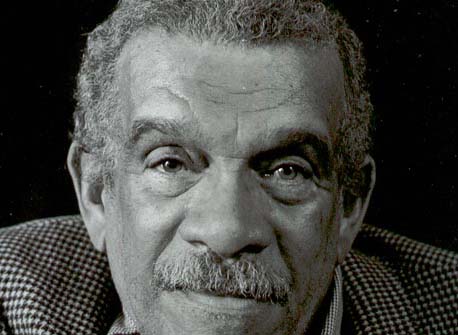|
|
|
DEREK WALCOTT

Derek Walcott was born at Castries, St Lucia, an isolated Caribbean island in the West Indies belonging to a belt of French-speaking islands. Walcott himself is a native English speaker and bilingual in also speaking Creole. His father, Warwick, was a Bohemian artist; he died when Walcott was very young. Walcott's mother, Alix, was a teacher, born in Dutch St Maarten.
Walcott educated at St Mary's College, Castries and at the University College of the West Indies in Kingston, Jamaica, where he studied French, Latin and Spanish. His first play, HENRI CHRISTOPHER, was performed in 1950, year in which Walcott founded the St Lucia Arts Guild. In 1953 Walcott moved to Trinidad and till 1957 he worked as a teacher at schools on several Caribbean islands. He then started his career as a journalist.
In 1958-59 Walcott studied theater in New York. He later worked as a professor of poetry at the University of Boston, and divided his time between Trinidad and the USA.
As poet Walcott made his debut at the age of eighteen with TWENTY FIVE POEMS, which was privately printed. His widespread recognition as a poet came with IN A GREEN NIGHT (1964). It manifested his primary aims: to create a literature truthful to the West Indian life.
In THE FORTUNATE TRAVELLER (1981) and MIDSUMMER (1984) Walcott explored his own situation as a black writer in America, who has become estranged from his Caribbean homeland. The very titles of such books as CASTAWAY (1965) and THE GULF (1969) referred to his feelings of artistic isolation and alienation.
Walcott's has called himself "a mulatto of style." His most ambitious work is considered the epic poem OMEROS (1990), which takes its title from the Greek word for 'Homer', and recalls the dramas of Homer's Iliad and Odyssey in a Caribbean setting. The Odyssean figure of Shabine in 'The Schooner Flight' expresses his rage against racism and rejection of colonial culture: "I'm just a red nigger who love the sea, / I had a sound colonial education, / I have Dutch, nigger and English in me, / and either I'm nobody, or I'm a nation."
From 1959 to 1971 Walcott was the founding director of the Little Carib Theatre (later the Trinidad Theatre Workshop). Walcott has written a large number of plays for stage and radio. Of these DREAM OF MONKEY MOUNTAIN was commissioned originally by the Royal Shakespeare Company in the late 1960s but produced finally in the USA. The work is considered to be his most impressive play. Walcott has also collaborated on several musicals with Galt McDermott, best-known from the hippie musical Hair.
Walcott has written both in standard English and in West Indian dialect. His plays examining the postcolonial condition owe much to folk and Creole tradition and history. They combine story-telling, singing, dancing, and the rhythms of calypso with richly metaphorical speech which mingles verse and prose.
His autobiographical works include the poem ANOTHER LIFE (1973), inspired James Joyce's self-examination in Portrait of the Artist as a Young Man. TIEPOLO'S HOUND (2000) was about the painter Camille Pissarro and the poet himself. The book was published with reproductions of Walcott's paintings. The death of his twin brother and playwright Roderick was one of the subjects of THE PRODIGAL (2004), which Walcott called his last book.
Walcott was awarded the Nobel Prize for literature in 1992 and his success has inspired many aspiring Caribbean writers.
|